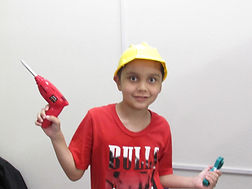
SOARING EAGLES




Center for Autism
Autism rates in the U.S. rise again to 1 in 31 kids
According to the CDC autism rates are raising once again. In 2014, they reported that autism effected 1 in 68 children. Then in 2020 it increased to 1 in 36, now it’s 1in 31. The data the CDC used to make this determination was taken from 14 states and Puerto Rico in 2022. Once again boys continued to be diagnosed more than girls, in fact four times more likely, yet a growing body of research shows that the condition is more common in girls than previously thought, according to a study from Children’s Hospital of Philadelphia. What is fueling this increase? Health officials attribute the increase to better recognition of cases due to wide screening and better diagnosis.
Since autism cannot be diagnosed by either biologic or blood tests, the determination is made by making judgements regarding the child’s behavior. It has been approximately 20 years since studies were conducted by the CDC and others, that have ruled out childhood vaccines as the cause. As to the cause, a lot of research has been conducted that looked at other possibilities: genetics, age of the father, weight of the mother and whether she had diabetes or exposure to certain chemicals. Other researchers have theorized it could be a series of things such as biological predisposition set off by some sort of toxic exposure.
Choose an Article Review

Client Spotlight By Kathy Morgan

Comedy Night

Employee Spotlight

Famous People With Autism
Dr. Karen's Korner

"Here's a from Dr. Karen Colvin-Whitaker"
GENERATIONS
As we are coming together once again as a community to support the mission of Soaring Eagles Center for Autism and Developmental Disabilities, for our 24th year, I am reminded that we have now made the difference for an entire generation of clients and their families living with autism. We have seen our clients grow into contributing members of our community. Their fight and struggles to learn has been rewarded with abilities to cope with the challenges of life. We are now seeing a new generation coming for help at Soaring Eagles, and we are encouraged that they will find the same success and overcoming abilities as the previous generation. As the world is changing, we are growing in our services with greater experience and expertise in the interventions with a person with Autism Spectrum Disorder (ASD), and other developmental disabilities.
We are also bringing on a new generation of staff members who we look forward to passing the baton of our mission to-in the future. We understand that Soaring Eagles Center for Autism is not just about one generation; but about a hope for the current and future generations to overcome the limitations of autism. We appreciate you, our supporters, so much and what you have done for us through the years. I want to encourage you also to pass the baton of your goodwill to the next generations in your life. My hope is that it will bless them as I hope it has blessed you in making the difference for the families of our community.
Love & Blessings,
Karen Colvin-Whitaker M.S.,M.D. Executive Director
…They shall mount up with wings as Eagles…

